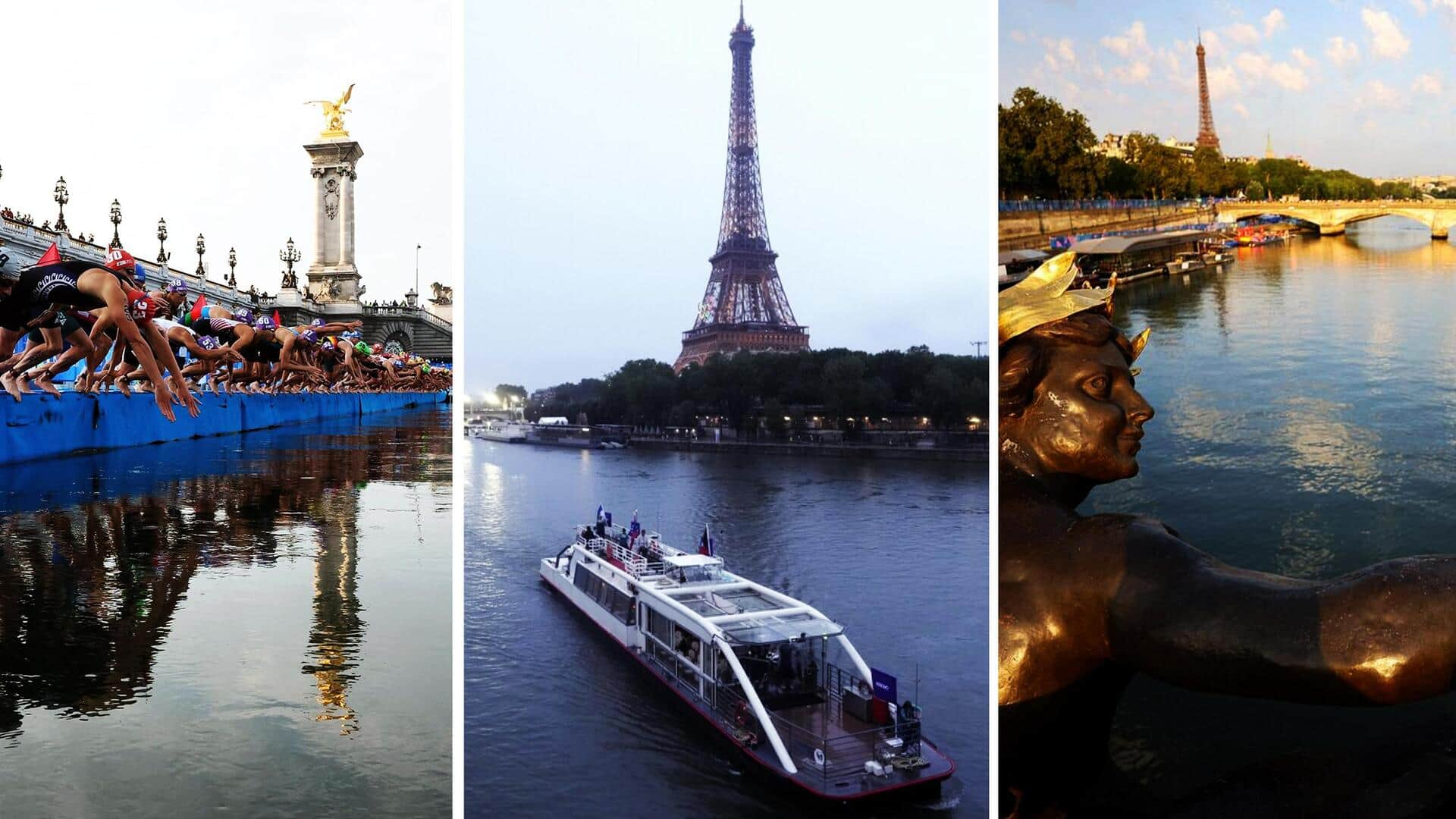
Paris Olympics: Why's everyone talking about River Seine's water quality
What's the story
The men's triathlon event at the Paris Olympics was deferred on Tuesday due to concerns over the water quality of the River Seine. Despite an investment exceeding $1.5 billion for river improvement, heavy rainfall in Paris resulted in wastewater overflow from the city's antiquated sewage system into the Seine. This led to a significant increase in pollution levels, prompting officials to postpone the swimming leg of the triathlon event.
Pollution woes
Long-standing pollution concerns plague the River Seine
The River Seine has been a subject of concern due to its high pollution levels, leading to a swimming ban since 1923. Paris's sewage system, which manages both rainwater and wastewater in the same pipes, is frequently overwhelmed during heavy rainfall. This results in untreated sewage being discharged directly into the Seine instead of being processed at a treatment plant.
Health concerns
Health risks associated with River Seine's water quality
Dr Nicole Iovine, an infectious disease specialist at the University of Florida Health in Gainesville, highlighted that heavy rains can lead to an influx of wildlife waste into the Seine. The primary concern is the high concentration of E coli bacteria in the river, which can cause severe illnesses such as gastrointestinal and urinary tract infections. Following heavy rains, E coli levels often exceed safety thresholds set by the European Union and World Triathlon Federation for competitions.
Cleanup efforts
Paris's billion-dollar effort to clean the Seine
In anticipation of the 2024 Games, Paris invested €1.4 billion ($1.53 billion) in a major environmental overhaul, including efforts to make the Seine swimmable for Olympic athletes. Central to these efforts was the construction of a massive underground rainwater storage tank designed to hold runoff water during heavy rains and prevent sewage system overflows. Despite these measures, heavy rains can still overwhelm the system and contaminate the river.
Event uncertainty
Potential cancellation of triathlon swimming events
The triathlon swimming events were scheduled for July 30 (Tuesday) and 31 (Wednesday), and August 5, with mandatory water quality tests required 48 hours before each race. If the Seine's water quality does not improve on reserve days, the swimming leg of the triathlons may be cancelled. The Vaires-sur-Marne Nautical Stadium near Paris has been kept as an alternative venue for marathon swimming if necessary.
Optimism prevails
Athletes and organizers remain hopeful
Despite the challenges, athletes are accustomed to adapting to variable conditions, according to United States Triathlon high performance general manager Scott Schnitzspahn. Earlier this month, Paris Mayor Anne Hidalgo swam in the Seine when E coli levels were deemed safe. Meanwhile, Paris 2024 organizers and World Triathlon remain confident that water quality will improve before competitions begin.